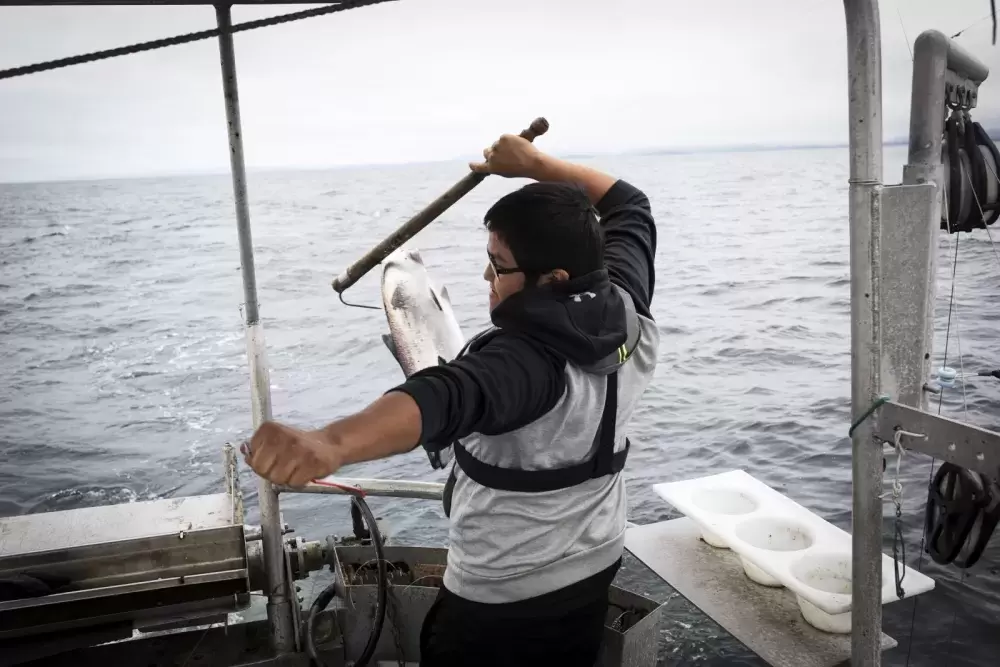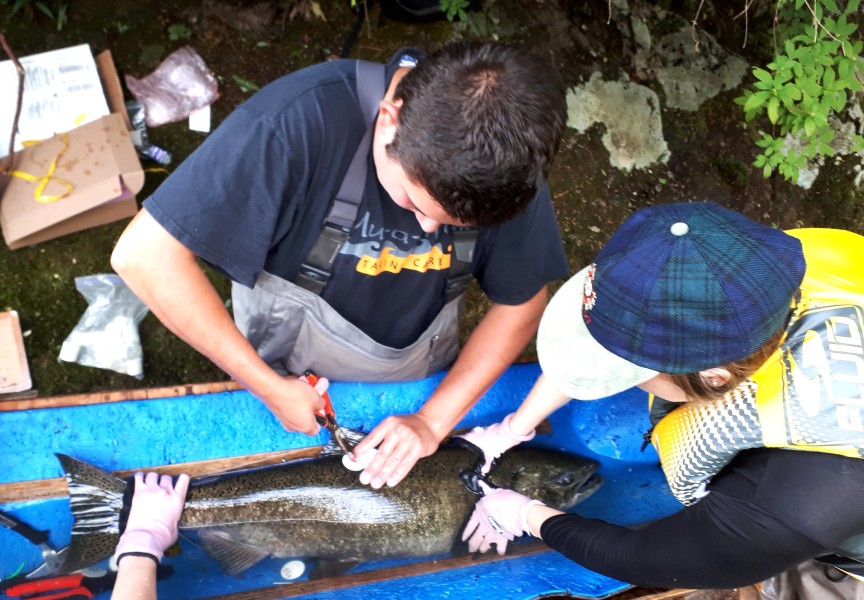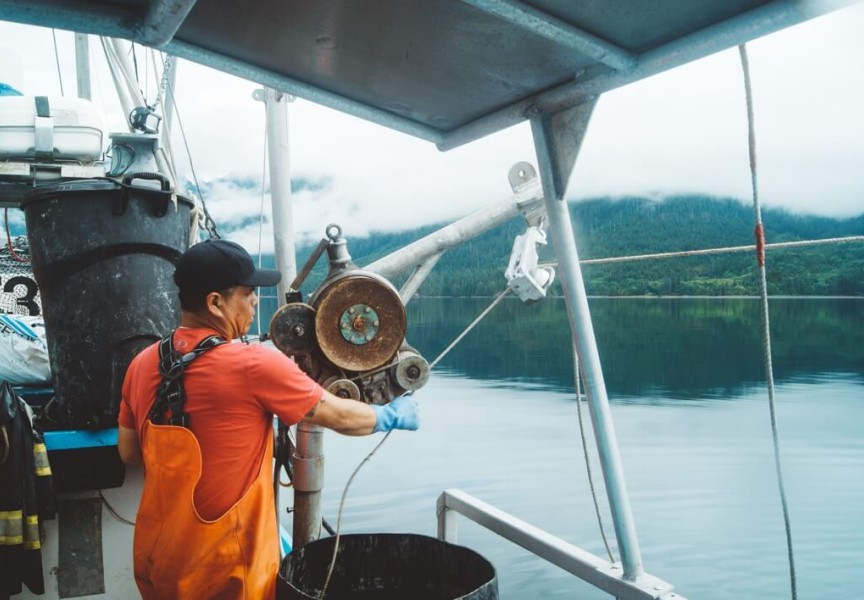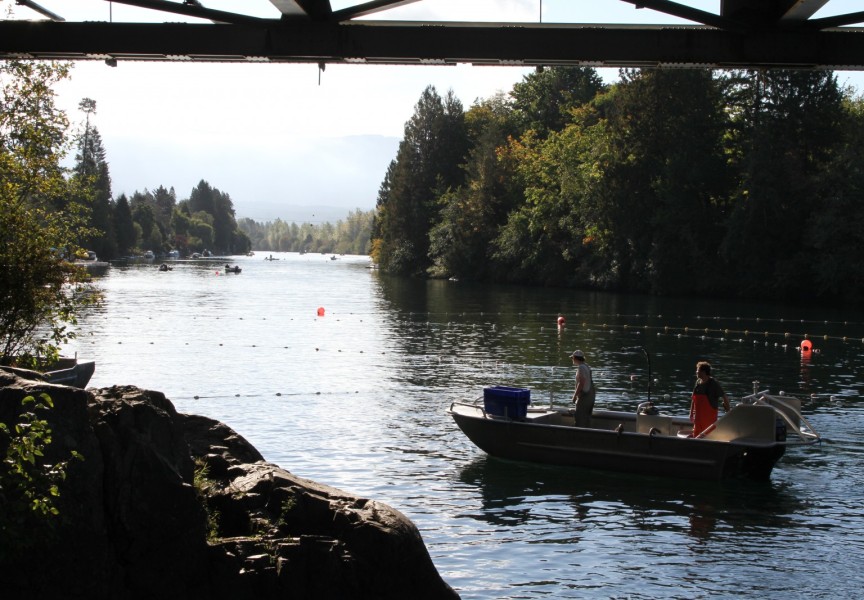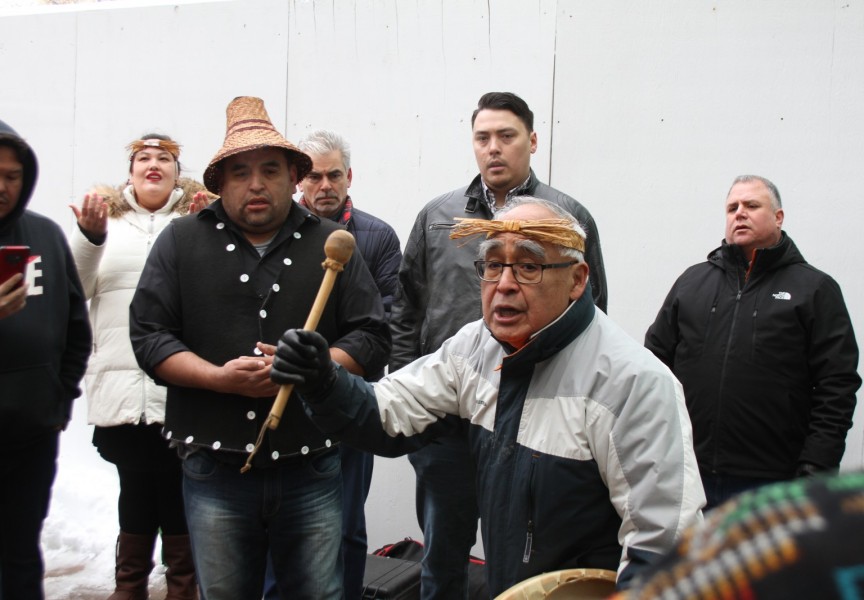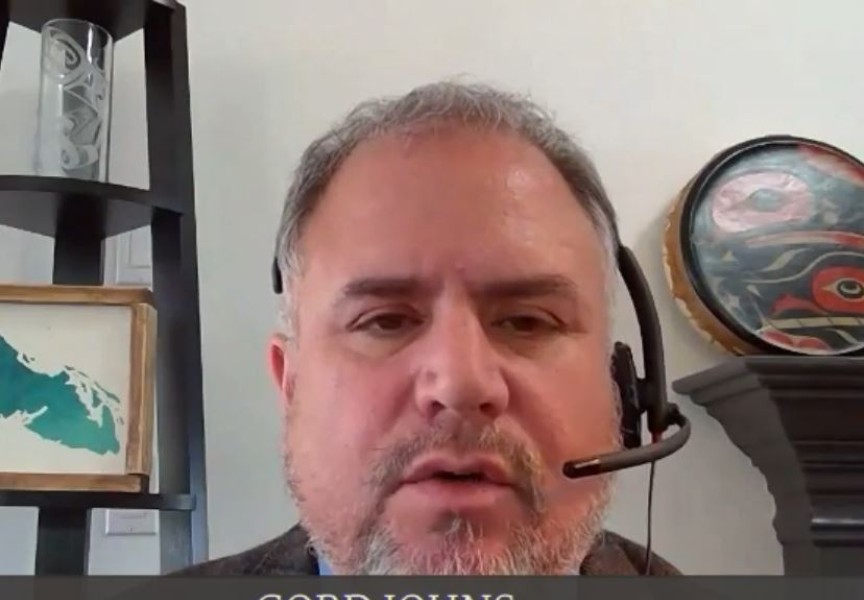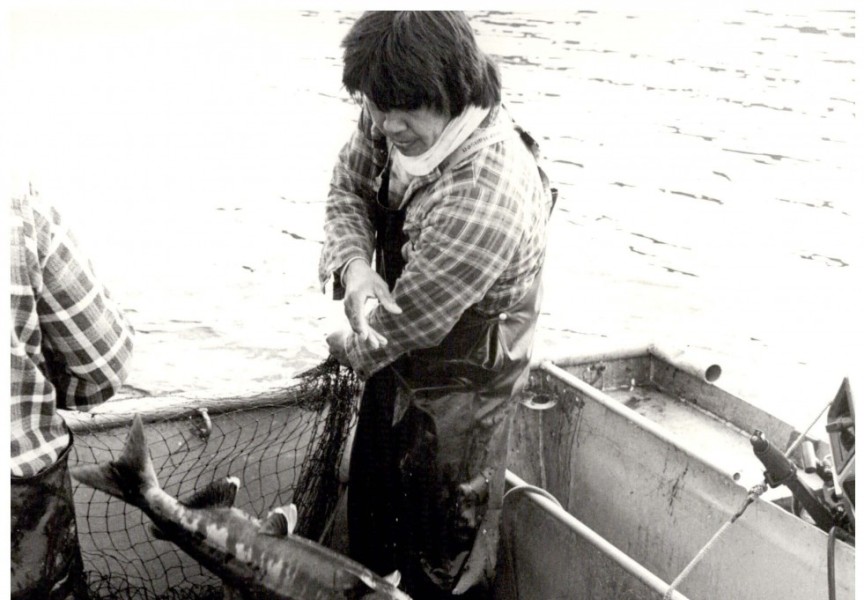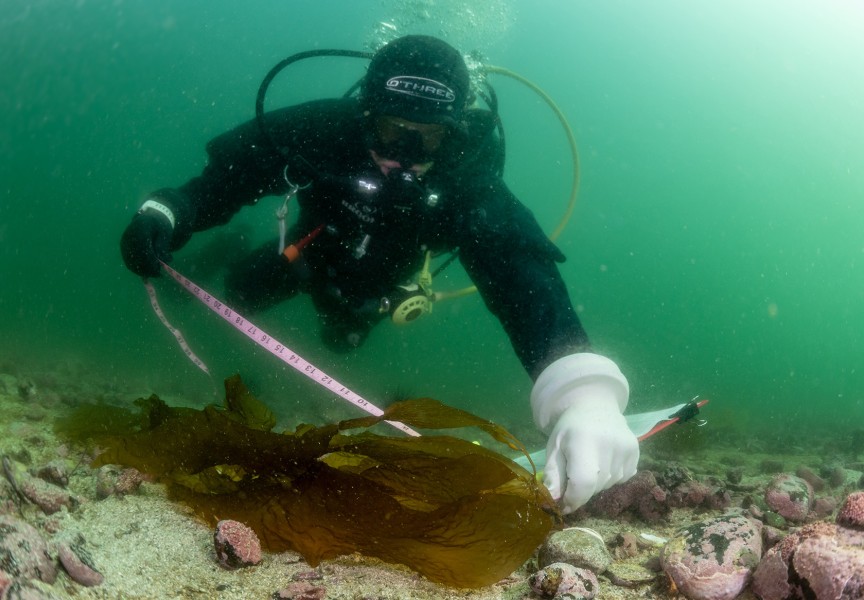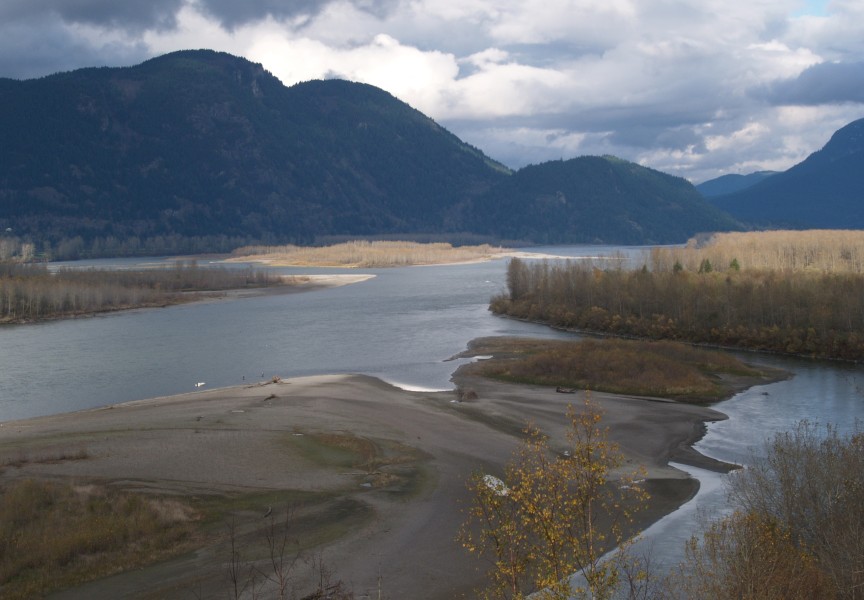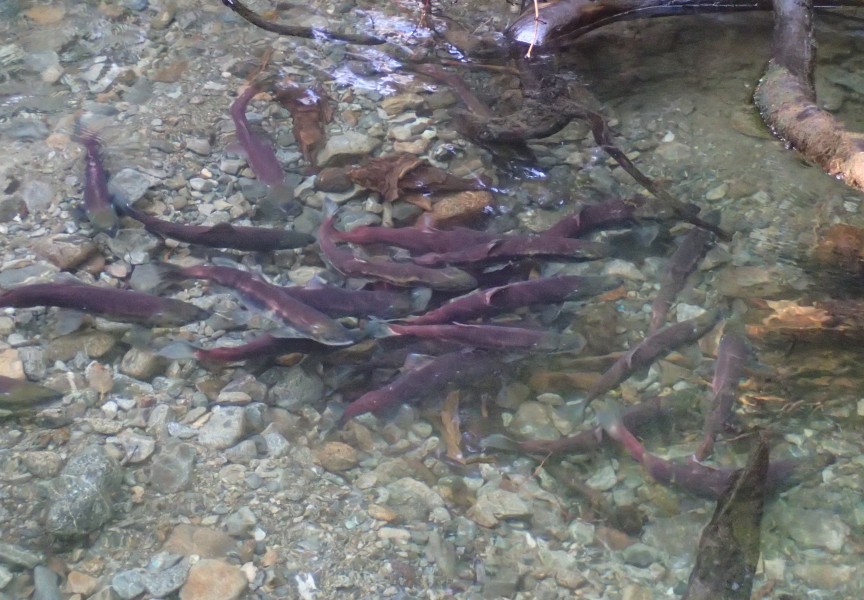Five Nuu-chah-nulth nations have responded to stalled talks with the federal government with a declaration from their Ha’wiih, authorizing members to discard DFO’s catch allocations and harvest according to their own fishing plans.
Effective immediately, the decision announced on Wednesday by hereditary leaders from the Ahousaht, Ehattesaht/Chinehkint, Hesquiaht, Mowachaht/Muchalaht and Tla-o-qui-aht provides the nations with half of what is caught in their territorial waters, allowing the remainder to be shared with other sectors, such as commercial and recreational boats.
Hasheukumiss (Richard George), a hereditary chief with the Ahousaht First Nation, said the Ha’wiih declaration follows his nation’s inherent right to harvest and sell fish from his territory.
“I have been continually shocked with the various allocations of fish species that the federal government has deemed appropriate,” he said in a press release. “The DFO and the rest of Canada need to understand that our traditional territories, and the resources within, are ours to manage. Everything within our waterways is 100 per cent ours, and it is our right to continue our fishery. We are willing to share 50 per cent of our resources with other user groups, but at the end of the day, the resources are ours to manage through our own conservation practices.”
This declaration goes far beyond allocations for the five nations that were set by Fisheries and Oceans Canada this year. In the spring the five nations were allocated 7,821 chinook salmon out of the 88,000 in total allowable catch off the west coast of Vancouver Island, while the sports fishery got 40,000. Another 5,000 chinook were set aside for First Nations food, social and ceremonial purposes, while nations in the Maa-nulth treaty got 3,441. The Area G troll fleet was allocated 31,738 chinook, but this was cut this summer as part of the government’s decision to close 60 per cent of commercial salmon fisheries in B.C. in an effort to reverse steep declines in West Coast stocks.
After those numbers were issued a ruling came from the B.C. Court of Appeal that stated the five nations have the right to a fishery “of a moderate commercial scale”. The court decision removed the terms “small scale”, “artisanal” and “local” that were used in a prior judgement to define the scope of the nation’s fisheries. DFO responded by increasing the nations’ chinook allocation to 13,000, but this fell far short of the 23,000 chinook that the Nuu-chah-nulth First Nations believe to be a fair catch in their waters, said Cliff Atleo, Ahousaht’s lead negotiator.
“Our five Nuu-chah-nulth nations demand reconciliation and recognition of their rights as affirmed in the constitution and declared by the courts,” said Kekinusuqs (Judith Sayers), president of the Nuu-chah-nulth Tribal Council. “They can not wait any longer for Canada to work with them on fishing plans and will be fishing under the authority of their Ha’wiih and asserting their rights as they have done since time immemorial.”
Talks of a reconciliation agreement between the five nations and DFO that was expected to be completed this summer have brought only “stale space” said Atleo.
“Prior to COVID, the regular meetings with DFO were two full days,” he said. “Since COVID we’ve been an hour and a half here, two hours there. We’re stretching it when we get three hours out of them.”
The Ha’wiih declaration is likely to impact the sports fishery’s share of Vancouver Island’s west coast catch, part of an industry that generates $6 million in annual expenditures in British Columbia, according to the Survey of Recreational Fishing in Canada.
Atleo said that this sector’s considerable share of DFO’s allocations shows where the government’s priorities are. He noted how, unlike the commercial sector, the recreational fishery did not face severe cuts this summer in the interest of conservation.
“The government favours them considerably,” said Atleo. “The action they called for with regards to conservation of endangered species on the west coast of Vancouver Island, they excluded them totally.”
Future talks with sports fishing groups are expected, said Atleo.

